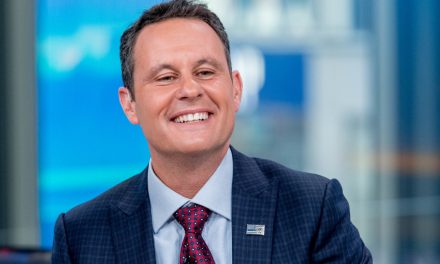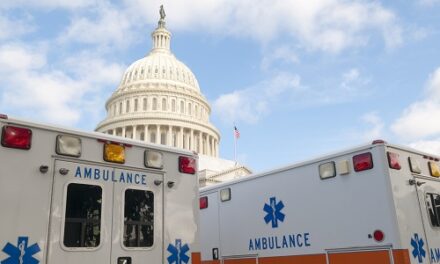“I don’t understand you Americans. You blow billions on a useless war in Afghanistan and Iraq, and billions more to bail out banks that nearly bankrupted the world economy, but you don’t ensure healthcare for your own people. Even Obama can’t make a difference. It’s as if your democracy doesn’t work anymore.”
Anonymous Man in Budapest
Where There’s a Will
In the first post in this series, I recalled saying something to the effect of “In a country as wealthy as this one, that a single child doesn’t have health insurance or health care is criminal.” The implication is the same implied in the words above, said to Steven Hill by an anonymous European man in a Budapest sauna, after Hill identified himself as an American.
According to Hill, the man’s reaction was typical of Europeans observing our political paroxysms over health care.
He was Austrian but spoke in a near-perfect English that was as good grammatically as that spoken by some of my relatives.
And his reaction was typical. As Europeans watch the United States flailing about over something as basic as healthcare, they are reminded once again of the impotent US response following Hurricane Katrina. TV images of stranded, poor, black people in New Orleans have been melded to those of this new healthcare insurgency with pitch forks, leaving an indelible impression. The last remaining superpower is not looking so super anymore, whether in Iraq, Afghanistan, healthcare, the economy – not anywhere.
Can you blame them for wondering why an issue like access to quality, affordable health care for all citizens — a no-brainer to them — is difficult for us that it’s taken almost 100 years for us to get something that their countries got long ago? Can you blame them for wondering if it’s because we can’t do it or because we just don’t want to do it?
It’s not because it can’t be done, or because it can’t work. After all, in much of the rest of the world, health is a human right so obvious that serious, contentious debate about it almost seems absurd, but borders on disturbing.
Nearly every society on earth — socialist, fascist or anything in between — regards not dying needlessly for lack of medical care as the most basic of human rights.
Some countries do a lousy job of health care, but most at least try. Saddam’s totalitarian Iraq had a pretty good system, although it was no match for communist Cuba’s. Only in America do people grow rich by deciding who gets to live or die. Nowhere else are costs so outrageously high or procedures so needlessly complicated.
It’s not that it can’t be done successfully. There are four countries that have better health care than ours — in that it delivers more, costs less, and covers far more people — at least according to the citizens who rated their countries’ health care system.
Anecdotal snapshots, however, tell us nothing meaningful about an issue as complex as healthcare, since the plight of a given individual reveals nothing about the effectiveness of the overall system. Now we know something more useful: how citizens in various countries rate their own healthcare systems. The Deloitte Center for Health Solutions surveyed 14,000 people in six countries, asking them to grade their own healthcare system from A to F. The standardized results allow comparisons among all six countries.
If you’re expecting to hear that the United States scored worst, then surprise! America was only second worst. Germany got the lowest grades, with just 18 percent of Germans giving their healthcare system an A or B. In the United States, 22 percent of respondents gave the healthcare system an A or B. Switzerland got the highest marks, with 66 percent of people giving the system top grades; France was next, at 63 percent.
Here’s how all six countries fared. The survey data are from Deloitte. Also included are cost data from the OECD, to give a sense of who’s getting the most satisfaction per healthcare dollar:
- Canada: Percent rating the healthcare system A or B: 46 percent; D or F: 15 percent; annual healthcare spending per person: $3,895
- France: A or B: 63 percent; D or F: 12 percent; spending: $3,601
- Germany: A or B: 18 percent; D or F: 44 percent; spending: $3,588
- Switzerland: A or B: 66 percent; D or F: 14 percent; spending: $4,417
- United Kingdom: A or B: 32 percent; D or F: 20 percent; spending: $2,992
- United States: A or B: 22 percent; D or F: 38 percent; spending: $7,290
And if you don’t want to take the word of “foreigners” who might be somehow biased in favor of their country’s health care system (and the access to quality, affordable care that it provides them), you can take the word of Americans who’ve tried other systems and ours, and found that those other systems work quite well.
For Maryland State Senator Jim Rosapepe, being hit by a car in Brussels, and a broken tooth in Frankfurt that brought home how much more health care is available elsewhere, while costing less.
A little over a year and a half ago, I was hit by a car in Brussels, Belgium. I was knocked out cold, bleeding, lying by the side of the road. But then the local ambulance service scraped me up off the pavement and took me to the University of Brussels Hospital. Over the next 18 hours, they saved my life. Eight days later, I flew back to the U.S. for a second operation at the University of Maryland to repair my broken leg.
Today, I can walk, drive, and dance (unfortunately, not any better than I could before). And my American health insurance company, CareFirst, paid less to put me back together in Brussels than if I’d been hit by a car on Route 1 in my hometown of College Park.
That’s the personal reason I support President Obama’s health insurance reform plan. Comprehensive, national care worked for me and works for middle-class families across Europe. All the micro debates in Washington this summer – about Congressional Budget Office estimates, Medicare reimbursement rates, the structure of a public option, bending cost curves – are just that, micro debates. They are real matters, but they are not the core issue.
> For Sara Robinson, it was a emergency room encounter with “encounter with a rational, not-for-profit, single-payer health care system,” just north of the border. The visit included an incredibly brief waiting period (“the waiting time between walking in the door and being admitted was literally about 45 seconds”), efficient and effective pain management (since “Canada sees drug abuse as a social problem, not a law enforcement one” no politics got between patient and pain relief), and ready access to medical records (“everybody in the BC health care system has their records in one big database, accessible within seconds in every doctor’s office and hospital”), but missed one inevitable ingredient in the U.S. version.
Finally, the last thing I noticed about last night was something that wasn’t there. I’m talking about that little meter in the back of my head, the one that whirred and spun and ticked off every charge from the minute I walked into an American ER until the minute I walked out again. The IV. The X-rays. The box of Kleenex, the Tylenol, and the barf pan. The crappy food (if you’re lucky enough to get any). Even with good insurance, the co-pays alone on eight hours in the ER could bust the family grocery budget for the next three months. That big number hanging over my head was always a real distraction from dealing with whatever crisis actually put one of us there. No matter what the presenting condition was when we arrived, I always seemed to have a bad case of heartburn when we left.
Contrast that with last night, when my glorious morphine dreams were completely untroubled by the sound of that mental meter. By the time they checked me out at 10:30 am, I’d had a whole bank of diagnostic tests, including a long and detailed ultrasound exam that found twin bouncing baby gallstones. The ER then handed me off to an internist for further exploration of the issue. (I see her next week — it’s already set up.)
No bills. No worrying about how to pay for the surgery, either — that will be covered, too. The morning nurse (the fabulous and charming Trish) pulled the IV. I got dressed, picked up my purse, and left. And that was it. No pain. No worries. No heartburn.
And that’s all it should ever be. And could be. And will be, if we keep leaning on Congress to get this thing done right.
That, of course, depends upon your idea of “done” right.
Stateside, Sara’s gall bladder or Sen. Rosaepe’s car accident could easily bankrupt a family, as is the case in sixty percent of personal bankruptcies filed in the U.S., or leave them swamped with bills if they are underinsured, and paying for health insurance that turns out not to cover much.
And even for the well-insured, a chronic illness or serious injury can be economically devastating — as it was for Kate Michaelman’s family when her husband was diagnosed with Parkinson’s disease, and later injured in a fall outside of a hospital, just a year after their daughter was paralyzed in a horse-riding accident.
The fraying financial thread by which we were already hanging was now certain to snap. When I heard the awful sound of my husband’s body hitting the concrete outside the hospital, I knew the modicum of independence to which he had clung for so long was gone. He was discharged into an assisted-living facility, where most of the cost was excluded from both his private long-term-care insurance and Medicare. At $9,000 a month, the bills accumulated quickly.
Recently, we decided to bring him home, although the doctors would have preferred that he stay at a facility with full-time supervision. But this was a mathematical decision, not a medical one: we do not have the money it costs to keep him there. I had already stopped working, to care for him; our savings are nearly depleted; and his pension is not nearly large enough to pay the bills.
Today he needs nearly round-the-clock professional help at home–less than the cost of the assisted-living facility but still far more than we have. I have spent recent weeks looking for a job that can add at least enough to my husband’s pension and our Social Security benefits to cover the cost of his care. It is a dilemma familiar to so many women–finding work that can pay for care but also leave time for providing it.
The time is drawing near when, job or no job, the expenses will simply be more than we have. I am coming full circle, back to where so many women’s lives begin and end–and where my career as an activist began: jobless, unsure how to pay the next month’s bills, caring for a family that depends on me for survival–and utterly and deeply determined that something about our country must fundamentally change.
You needn’t have a serious illness or accident to find yourself in the. You could be taking good care of yourself, and getting plenty of exercise, when someone walks into your gym and and starts shooting the place up, as happened in Pittsburgh. If you take a bullet, and you’re young and uninsured, like Michaelman’s daughter or one young woman injured in the Pittsburgh shooting, you’d better hope you have friends like Tom (who commented on Sara’s post that he was about take up a collection for her medical bill, till he learned that she happened to fall ill in Canada) or like this young woman’s friends, who held a car wash to help cover her medical bills.
My sister is a member of the fitness club where that shooting took place. It was just chance that she was not there, and not in that fitness class, the night the shooting took place. My gratefulness for her safety has been tempered by my sadness for the women who were killed and injured there.
Well, just imagine my thoughts today when I talked to my sister, and she let me know what was going on for one of the women who was shot at the fitness club. The young woman had recently graduated college and therefore had “aged out” of coverage on her parents’ health insurance. She did not have coverage provided through a job. I can’t tell you why she didn’t purchase coverage on the open market – because it was out of her financial reach, because she didn’t think she needed it (being young and healthy), who knows, maybe she had a pre-existing condition that made it impossible for her to get it (see my next post). Whatever, she didn’t have health insurance…
So her friends and family recently sponsored a friggin’ car wash to raise funds to pay her hospital bills. Yes. A car wash.
My sister asked: what’s the difference between throwing five or ten dollars into the can at the car wash to help this young woman out, versus what we might be doing if we all paid a bit in taxes to make sure that everyone had adequate health insurance coverage? If you are willing to help out at events like this, why don’t you want to help out with your taxes to make sure that people don’t have to go around begging for help to pay for their hospital bills? Why, she asked, can’t we all just acknowledge that we are all in this together, and that we need to take care of each other?
Why? As was clear to the man in that sauna in Brussels, where we began, it’s not because we can’t afford it. Not if you look at what we do spend money on.
If every child in America doesn’t have health care, but we own more than 6,000 nuclear weapons, more than half of them on board a fleet of 18 extremely expensive Trident submarines ready to fight the Soviets (Hey! Where’d they go?), isn’t it time to ask some fundamental questions? One is: Why spend $16.5 billion just on the Department of Energy nuclear weapons budget for FY 2010 with 50 million uninsured citizens? Does US Sen. Jim DeMint (R-South Carolina) speak for us all when he calls health care a privilege (and presumably threatening life on Earth is a human right for the US military)?
When our working poor are so often without either the money to pay for health insurance or the high costs of health care for ailing family members, and yet we somehow manage to justify spending in excess of $915 billion on the so-called War on Terror, shouldn’t we engage in some national discussion about priorities?
$1 trillion for war while unemployment pushes ten percent in more and more states is unconscionable. Unemployment means a loss of health care for a high percentage of those who lose jobs and more foreclosures on the American dream of home ownership every month. Historically, it naturally correlates with increases in crime. The US is the last of the so-called developed countries to fail to insure the unemployed and underemployed, and we have the highest crime rates. So many thousands of us are shot each year that we more than qualify to be considered at war inside our own borders. Much of that carnage relates to social problems like unemployment, lack of health care and simple hopelessness.
If it’s not because it can’t be done, because it can’t be done successfully, or because we can’t afford it, that really leave one other reason.
We can’t afford the plan? That is a whopper. It’s all choice.
It’s because we don’t want to. If we can’t guarantee access to quality, affordable health care for all — though it’s clearly well within our grasp — it can only be due to a lack of sufficient political will. That anyone would have to hold car wash, have a bake sale, or pass a tin can around to pay for needed medical care doesn’t outrage us is ample evidence of that.
We just don’t want to. The very idea that Sara, Sen. Rosapere or the young woman in Pittsburgh might get medical care they need without huge bills — and that we might contribute to their care, as others would contribute to ours under systems like those in Canada, or much of Europe — makes some of us angry enough to reach for a weapon, and take it to a political rally.
So, we don’t want to. The more difficult question is: Why don’t we?







